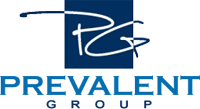- Don’t announce your new job on social media before you’ve given your notice.
- Do not announce your resignation through a company-wide mass email.
- Do not use your exit interview as a therapy session to get things off of your chest. Always be gracious and constructive.
- Don’t lie about where you’re going or what you’ll be doing. If you don’t want to share your new position with your current employer, you don’t have to.
- Do not delete computer files or remove any paper files from the office.
Don’t Burn Bridges! 5 Tips on How to Properly Resign
Whether you are tendering your resignation because you’ve accepted a new opportunity, or because your job has become completely intolerable, you should always exit in a professional manner. It’s never a good idea to burn bridges because you never know where your career path may take you. You may need a reference from your former employer, or the boss that you loathe could wind up as a colleague down the line.
Resigning gracefully can be especially difficult when you are leaving a stressful or tense work environment. No matter how gleeful you may feel about quitting, there are some steps that you can take to ensure that the door won’t be sealed and locked after you exit.
Keep Your Resignation Letter Short
Your resignation letter should be short and simple. At a minimum it should include the name of the person to whom you are submitting the letter, your statement of resignation, your last day or work, and your signature. You can include positive statements about your boss and the organization, but never put any criticisms in writing. Your resignation letter will be a part of your employee file, on hand for HR staff to see in the event of a reference check. Choose your words carefully.
Resign Face To Face
Type up and print your resignation letter at home, and bring it with you when you speak to your supervisor. Tell your boss verbally that you are leaving, and then follow up by giving her the letter. If you have taken a new position, say so, and always express your appreciation for the opportunities that your current position has afforded you. If you are leaving a bad work environment without another position, simply tell your boss that you are moving on, and again, express your appreciation.
Give as Much Notice as You Can
A minimum of two weeks is standard practice, but if you can give your employer more notice, do so. Two weeks is usually not enough time for employers to properly transition your work to new employees.
It’s never a good idea to schedule vacation during your notice period, even if you’ve given as much as 30 days. There isn’t much your employer can do to stop you, but it will leave a bad taste in the mouth of your managers and coworkers.
Offer to Help With the Transition
Offer to be part of a transition plan to wrap up your current projects or hand them off to other employees before you leave. Transitions are never easy, and it can ease a lot of stress if you commit to seeing your projects through to completion. Your boss may or may not take you up on the offer, but she will appreciate the gesture.
Things You Should Never Do When Resigning
Employees can often act impulsively when they resign. No matter what your circumstances may be, there are several things you should avoid doing at all costs:
